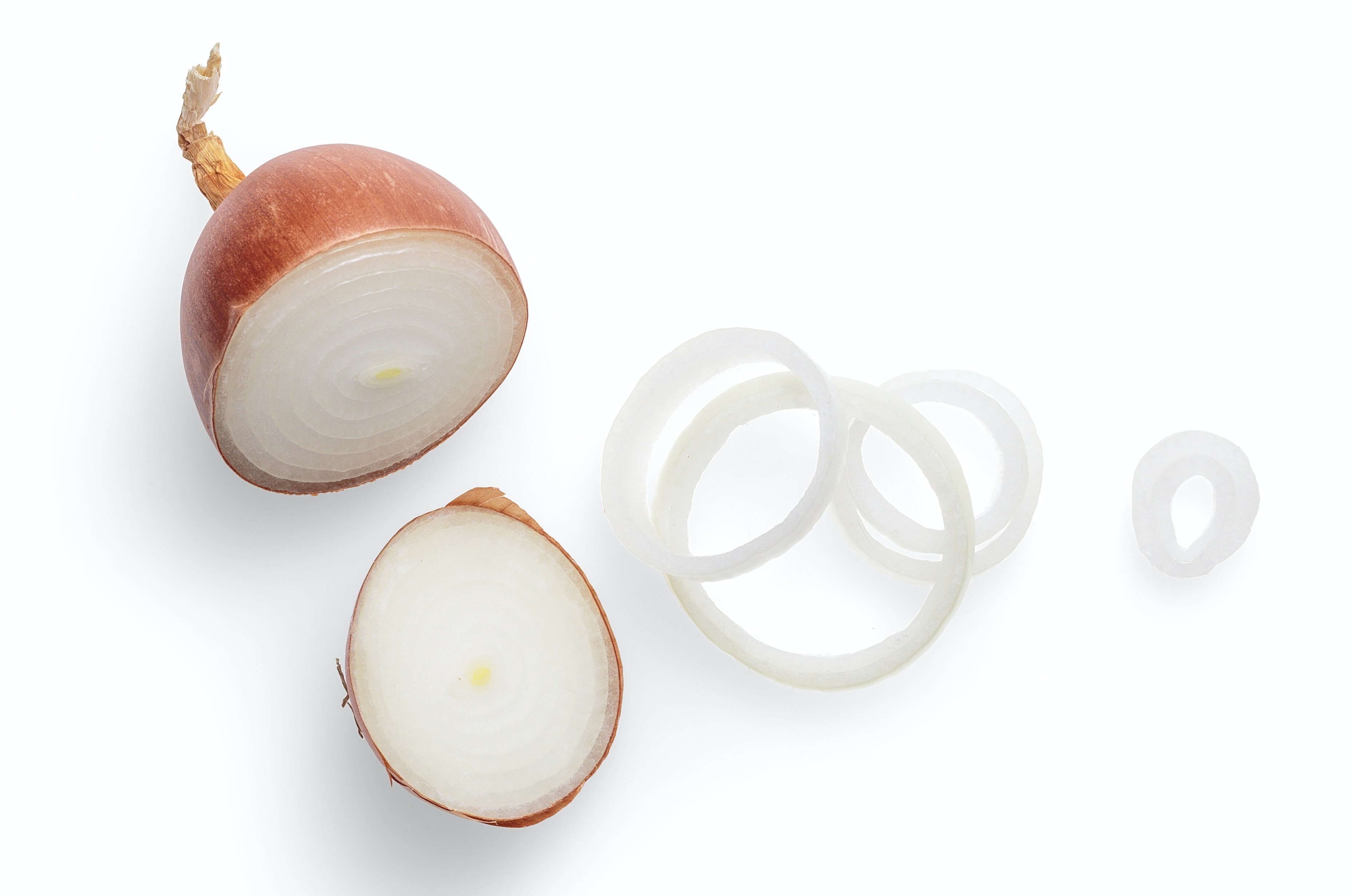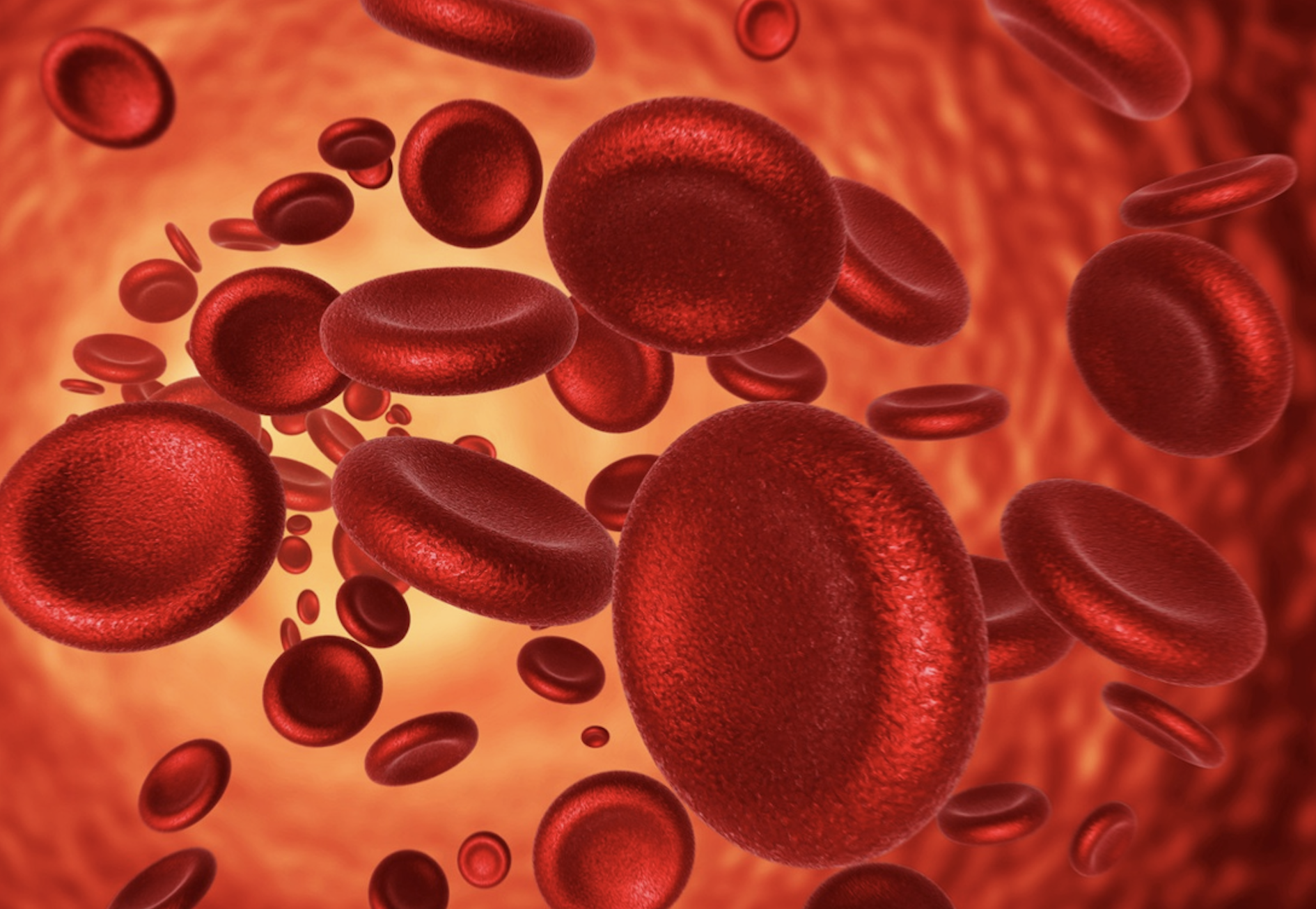Onions are not only seasonings, but they also have many health benefits. The ancient Greeks already knew that. They used onions as an aid for flu and colds. Onions contain a variety of bioactive compounds, including flavonoids, oligosaccharides, arginine, and selenium. Two sets of these compounds make up the majority of the onion’s known active constituents – sulfur compounds, such as allyl propyl disulfide (APDS), and flavonoids, such as quercetin. Each of these groups of compounds has multiple medicinal actions. In addition, onions contain important nutrients, such as B vitamins, vitamin C, iron, zinc, calcium, magnesium, iodine, chromium, molybdenum, and manganese.

Onions are also rich in fiber. One medium onion provides about 2.5 mg of fiber; this is about 7% of the daily requirement.
Now let us take a look at the main health benefits of onions.
1. Onions have a positive effect on diabetes
Thioproanal-s-oxide is the sulfur compound or lachrymatory factor in onions responsible for the tearing many people suffer while cutting onions. This compound has been shown to block the breakdown of insulin by the liver and may also stimulate insulin production in the pancreas. This increases the amount of insulin and reduces sugar levels in the blood. The blood sugar lowering effect occurs only in people with diabetes, not in healthy nondiabetic people, although healthy people also benefit greatly from eating onions to keep their blood sugar levels optimal.
2. Onions are good for heart and blood vessels
Onions are particularly good for the heart, according to the British Institute of Food Research. This is because onions are high in polyphenols in the form of quercetin. Quercetin is an antioxidant (also found in apples and some other fruits and vegetables) that has beneficial properties for blood vessels by combating chronic inflammation and the thickening of the blood vessels. Inflammation is a major cause of blood vessel clogging. In this way, onions can prevent or possibly reduce atherosclerosis. Human studies have shown that the inclusion of quercetin in the diet, primarily from onions and apples, reduces the risk of a heart attack. High intake of quercetin and other flavonoids from onion and other flavonoid-rich foods has been shown to decrease the risk of atherosclerosis in an epidemiologic study in the United States.
3. Onions help lower LDL cholesterol
As mentioned above, onions are rich in sulfur-containing components. This helps lower LDL cholesterol in the blood. In a study of healthy male volunteers, adding 50 grams of raw or cooked onion (half of a medium onion) to their diet prevented the abnormal rise in cholesterol due to the consumption of a high-fat meal.
4. Onions have cancer-prevention properties
Onions clearly have cancer-prevention properties. Numerous epidemiological studies have been done on the possible medicinal properties of onions in protecting against cancer. Several studies have shown that eating onions regularly significantly reduces the risk of cancers, such as stomach, prostate, kidney, oral (mouth), breast, and colon cancer. In one study, onion consumption at a level of at least half an onion per day was associated with a 50% decrease in stomach cancer risk.
In another epidemiological study, a higher intake of onions was correlated with a lower risk of breast cancer. The strongest evidence points to the protective effects of onions (as well as garlic) against cancers of the digestive tract. Factors that may affect the relationship between onions and cancer prevention are the interactions of onions and their bioactive components with the oral and gut microbiota. All this does not mean that onions can cure cancer without a holistic approach to diet and lifestyle. However, eating onions every day may reduce the risk of developing cancer.
5. Onions support immune system
Thanks to a wide variety of antioxidant compounds, including flavonoids, selenium compounds, glutathione, and vitamin C, onions perfectly support the immune system. In studies, onions were found to have higher scavenging activities (cleaning up waste and toxins) than garlic. Red onions had higher activities than yellow onions and outer portions of onion bulbs had higher activities than inner portions. Therefore, when peeling onions, do not remove too much from the outer parts, and use red onions more often in your salads.
Onions are a powerful remedy for flu, colds, coughs, and bacterial infections, such as Helicobacter pylori. If you have the flu and a stuffy nose, it is good to drink onion tea, eat raw onion, and put half an onion on the bedside table during sleep. The nose then remains open, and you can breathe properly. Onions also increase resistance to other infections and fungi, such as candida.
In addition, the substance quercetin in onions helps to protect against hay fever.
6. Onions prevent and inhibit inflammation, and help against asthma
There is some evidence that sulfur compounds in onions can inhibit inflammation activities in the body. They would inhibit the production of thromboxane, which causes inflammatory reactions. The sulfur compounds (thiosulfates and cepaenes) inhibit a couple of enzymes in the body, cyclooxygenase and lipoxygenase, which are partly responsible for inflammation and asthma attacks. The sulfur compounds of onions quell histamine release and other inflammatory reactions of asthma. Eating onions regularly, therefore, prevents inflammation.
7. Onions stimulate digestion
One of the main health benefits of onion is its beneficial effect on the digestive system. The health of the digestive system is extremely important for the health of the whole body. These benefits of onions are thanks to inulin, a fiber present in the vegetable. Inulin works as a food source for the good bacteria in the intestines and thus stimulates a healthy balance of microbiota. Beneficial microbiota in the gut is very important to help digest food that humans would be otherwise unable to break down. On the other hand, harmful microbiota can cause damage as well as various gastrointestinal diseases, such as Crohn’s disease and ulcerative colitis.
Another soluble fiber in onions, oligofructose, can prevent and fight various types of diarrheas, according to research. However, onions can help maintain a healthy digestive system in even more ways. Antibacterial phytochemicals in onions, for example, can reduce the risk of stomach (peptic) ulcers (peptic ulcers are most commonly caused by a bacterial infection with Helicobacter pylori), and the natural prebiotics in onions can help relieve constipation. But if you already have a gastrointestinal disease, such as a peptic ulcer, don’t eat raw onions until the disease is under control. Use then boiled, stewed, or baked onions.
8. Onions improve sperm quality
Studies have shown that fresh onions increase sperm concentration and also increase the number of viable sperm. Onions could therefore improve the quality of sperm and, thus, the fertility of men.
9. Onions improve intimacy
Ancient Romans used onions to enhance their intimacy. The explanation for this is simple – onions improve the oxygen and nutrient-rich blood flow to the limbs, partly due to a fairly high iron content, which increases the natural need for intimacy. In addition, onions increase the testosterone level, which increases sexual capacity.
10. Onions rejuvenate the skin and fight acne
Onions contain flavonoids, sulfur-containing components, and antioxidants that help improve the quality of your skin and slow down skin aging. In addition, the polyphenol quercetin in onions promotes the action of vitamin C in the body. The onion itself also contains this vitamin. One medium onion provides about 8% of the daily requirement of vitamin C. Thanks to its antimicrobial, antibacterial, and anti-inflammatory properties, onions also help fight acne.
11. Onions protect against cavities and tooth decay
Since onions are considered a natural antibiotic, they are also ideal for natural oral care and can help prevent tooth decay. Cavities and tooth decay are mainly caused by bacteria that we have in the mouth. The damage these bacteria can do to your teeth and gums is exacerbated if you use refined sugars and products with added refined sugars. These sugars stimulate the growth of the bacteria in the mouth. Certain harmful bacteria have been found to die under the influence of the antibiotic effect of the onion (and also garlic). This way, onions can protect your teeth from cavities.
12. Onions have a beneficial effect on bone density
Small-scale research has shown that onions have a beneficial effect on bone density. Bones became stronger over time, and the chance of bone fractures was reduced as a result of eating onions. Thanks to high antioxidant content, onions can reduce oxidative stress in the cells. As a result, bones lose less magnesium and calcium. This prevents bone loss, and thus osteoporosis, and increases bone density.
13. Onions improve brain functions, such as memory
Our brains can store harmful toxins that can interfere with brain activities and lead to brain disorders. Studies have shown that the antioxidants in onions bind with these harmful toxins in the brain, after which the body can remove them via the drainage channels. The sulfur compounds in onions can counter amnesia in the elderly, but this only applies to raw onions because sulfur compounds lose some of their properties during cooking. Another study indicates that the bioactive substance di-n-propyl trisulfide in onions improves memory disorders due to its powerful antioxidant effect.
14. Onions improve eye health
The sulfur compounds in onions have a beneficial effect on the health of the lens of the eye. These compounds stimulate the production of the protein glutathione. Glutathione is found in a high concentration in almost all body cells and is one of the most important antioxidants in the body. Higher levels of glutathione mean a reduced risk of glaucoma and macular degeneration. Onions can also be used as a therapeutic agent to prevent cornea clouding.
How many onions you should eat per day and how to use them
You probably want to know the best way to use onions—raw or cooked—to get the most out of their health properties. Several studies suggest that onion bioactive compounds are degraded by cooking and that raw onions are probably the most effective, although cooked onions have also been found acceptable in some studies. If you use raw onions in your salads and cooked onions in your prepared meals, you will enjoy all the health benefits.
You also probably want to know how many onions you should eat per day to get the most out of their health benefits. Most human studies that have shown the medicinal effect of onions used at least 25 grams (0.9 ounces) per day and mostly 50 (1.75 ounces) to 100 grams (3.5 ounces). One medium onion weighs about 100 grams (3.5 ounces). If you use an average of ½ of onion in your salad and ½ in your cooked meal, you get enough to reap all the benefits.
Contraindications
Raw onions are contraindicated in severe liver and kidney diseases and with exacerbation of diseases of the gastrointestinal tract. It is also not recommended for severe metabolic disorders, chronic heartburn, severe allergies, and urolithiasis. But boiled, stewed, or fried onions can be used by everyone except those who have their individual intolerance.
Conclusion
Countless studies have shown that eating onions has a positive effect on health. But, as is the case with all foods, it is important to eat a varied diet by putting a lot of different vegetables on your daily menu because a single vegetable cannot work wonders.
Source: US National Library of Medicine





